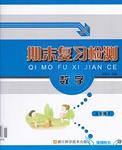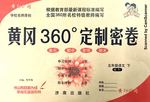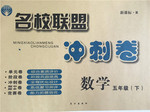题目内容
(共5小题,每小题3分,满分15分)
根据短文内容,从短文后的选项中选出能填入空白处的最佳选项。选项中有两项是多余选项。
You may know the benefits of laughter on the mind and spirit. __1__. Norman Cousins used to say that laughter is so beneficial for your body that is like “inner jogging”.
Mayo Clinic Health Letter reports that laughter aids breathing by increasing your breathing rate. It can even help clear mucus (粘液) from your lungs. __2__. It increases circulation and improves the delivery of oxygen and nutrients to tissues throughout your body. __3__. It helps fight off colds, flu etc. by increasing the concentration of immunoglobulin A (免疫球蛋白A) in your saliva (唾液). And it may help control pain by raising the levels of certain brain chemicals.
Furthermore, it is a natural stress reliever. Have you ever laughter so hard that you doubled over, feel off your chair, spit out your food? __4__. The good news is that you are allowed more than 15 laughs a day! Go ahead and double the dose and make it 30 times today. (You may begin to notice immediate improvement in your relationships!) Then double it again! __5__. People will enjoy being around you as well.
Laughter, it's the best medicine.
A. Laughter is also good for your heart.
B. A good laugh helps you build up you body to protect against diseases.
C. However, it is confusing why laughter makes people so good.
D. However, are you aware of how much a good laugh can help you physically?
E. A good laugh relieves physical tension and stress.
F. You cannot maintain muscle tension when you are laughing!
G. You are likely to feel better and deal with problems more effectively.
根据短文内容,从短文后的选项中选出能填入空白处的最佳选项。选项中有两项是多余选项。
You may know the benefits of laughter on the mind and spirit. __1__. Norman Cousins used to say that laughter is so beneficial for your body that is like “inner jogging”.
Mayo Clinic Health Letter reports that laughter aids breathing by increasing your breathing rate. It can even help clear mucus (粘液) from your lungs. __2__. It increases circulation and improves the delivery of oxygen and nutrients to tissues throughout your body. __3__. It helps fight off colds, flu etc. by increasing the concentration of immunoglobulin A (免疫球蛋白A) in your saliva (唾液). And it may help control pain by raising the levels of certain brain chemicals.
Furthermore, it is a natural stress reliever. Have you ever laughter so hard that you doubled over, feel off your chair, spit out your food? __4__. The good news is that you are allowed more than 15 laughs a day! Go ahead and double the dose and make it 30 times today. (You may begin to notice immediate improvement in your relationships!) Then double it again! __5__. People will enjoy being around you as well.
Laughter, it's the best medicine.
A. Laughter is also good for your heart.
B. A good laugh helps you build up you body to protect against diseases.
C. However, it is confusing why laughter makes people so good.
D. However, are you aware of how much a good laugh can help you physically?
E. A good laugh relieves physical tension and stress.
F. You cannot maintain muscle tension when you are laughing!
G. You are likely to feel better and deal with problems more effectively.
小题1:D
小题2:A
小题3:B
小题4:F
小题5:G
试题分析:
试题分析:本文讲述的是笑对人的好处“笑一笑,十年少”。
小题1:根据前一句You may know the benefits of laughter on the mind and spirit.说明笑声对人的精神有很大的好处,接下来就要讲述的是笑声对人的身体上的好处。故D项符合上下文。
小题2:根据上句It can even help clear mucus(黏液) from your lungs.以及本段叙述内容说明笑声对人的心脏也是很有好处的。故A项符合上下文。
小题3:根据下句It helps fight off colds, flu,etc.说明本段是关于笑的具体的好处,选项中只有B项内容与之相符。
小题4: 根据本段第一句it is a natural stress reliever(缓解)说明笑声可以减压,那么F项内容与之相符。
小题5:根据上3句内容都是要求我们多笑,这句应该说明的是笑声的对我们影响,故G项正确。
点评:做题时要注意文章的首段和每一段的首句或尾句,因为它们往往就是文章的主题句。阅读中要注意要点之间的关系,找出答题所需要的依据,完成阅读任务。

练习册系列答案
 期末复习检测系列答案
期末复习检测系列答案 超能学典单元期中期末专题冲刺100分系列答案
超能学典单元期中期末专题冲刺100分系列答案 黄冈360度定制密卷系列答案
黄冈360度定制密卷系列答案 阳光考场单元测试卷系列答案
阳光考场单元测试卷系列答案 名校联盟冲刺卷系列答案
名校联盟冲刺卷系列答案
相关题目
